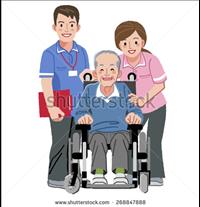|
Friday, February 7, 2020
 My favorite hobby is reading and I try to combine my love of reading with my profession of estate planning. The plots of some of my favorite books are about dysfunctional family relationships complicated by really bad estate planning!Here are three books I recommend where siblings were torn apart by their parents’ bad estate planning choices.The Nestby Cynthia D’Aprix SweeneyThe four siblings of the Plumb family - Leo, Melody, Beatrice, and Jack- are the beneficiaries of a trust fund they call “The Nest” left to them by their father. The terms of the trust provide that the trust assets will be distributed equally to the four siblings when the youngest, Melody, reaches age 40. When the book begins, Melody is fast-approaching her 40th birthday, and each of the siblings is anxiously awaiting the distribution that could solve their self-inflicted life problems.
Read more . . .
Wednesday, December 4, 2019
 Happy Holidays! Is It Time to Have a Conversation About Long-term Care with an Aging Parent?Like many families, mine is scattered all over the United States. Work and other commitments make it difficult to visit distant loved ones more than a few times a year. When visiting, it is hard to gauge the health and safety of family members because they are often not going about their normal daily activities. A few years ago, while visiting my dad in Oregon, I noticed that there was something not quite right with him. He was repeating himself and telling stories about his history that I was pretty sure were not true.Read more . . .
Thursday, July 23, 2015
 July is SANDWICH GENERATION AWARENESS MONTH The Sandwich Generation refers to those caregivers, generally between the ages of 45 and 59, who are caring for aging parents while also caring for young children or dependent young adult children. One of the issues facing many of those caregivers is how to pay for the aging parent’s long-term care needs. Long-term care refers to ongoing assistance to meet some of the basic activities of daily living, such as bathing, eating, dressing, using the toilet, transferring from bed or chair, caring for incontinence or eating. The type and cost of long-term care depends on the services necessary for the health and safety of the person. Keep in mind that Medicare does not pay for long-term custodial care.
Read more . . .
Tuesday, July 1, 2014
Joe, an 89-year-old veteran served in WWII. He and his wife, Mary, have been living in an assisted living facility for three years and Joe has been receiving VA Pension with Special Monthly Pension for Aid and Attendance. Joe recently fell, and his physician has decided Joe cannot return to the assisted living facility. Joe is now in a Nursing Home and needs to apply for Medicaid to cover the cost of his care. VA Pension Benefits can be a lifesaver for veterans or their surviving spouses who need home care or assisted living facility care. Read more . . .
Monday, June 30, 2014
Steve, a veteran who receives service-connected compensation for ALS, amyotrophic lateral sclerosis, often known as Lou Gehrig’s disease, has trouble walking up the stairs and it is getting increasingly difficult for him to get in to the bathtub. His wife, Jane, can no longer lift him into the tub.
Steve may be eligible for a grant from the VA to adapt his house to accommodate his disability. The VA provides grants to Service members and Veterans who have total service-connected disabilities to help modify a home, purchase an already adapted home, build an adapted home on land already acquired, or pay down the unpaid principal on the mortgage of an adapted home the Service member or Veterans has already acquired.
There are two types of grants, with unfortunately similar acronyms: the Specially Adapted Housing (SAH) Grant, which provides up to $67,555 or the Special Housing Adaptation (SHA) Grant, which provides a maximum of $13,511 in 2014. Read more . . .
Friday, February 28, 2014
What is a Fiduciary and why does the VA want to appoint one for my dad?
George, a veteran of WWII who now lives in an assisted living facility, applied for Improved Pension with Aid & Attendance. After a few months, the VA sent him a letter explaining that George had been awarded the Pension, but would not receive his retroactive check until the VA determined whether he was competent to handle his affairs and whether the VA should appoint a fiduciary to manage his checks. What is a Fiduciary and why does the VA want to appoint one for my dad?
George, a veteran of WWII who now lives in an assisted living facility, applied for Improved Pension with Aid & Attendance. After a few months, the VA sent him a letter explaining that George had been awarded the Pension, but would not receive his retroactive check until the VA determined whether he was competent to handle his affairs and whether the VA should appoint a fiduciary to manage his checks.
Often veterans or their surviving spouses applying for VA Pension or Compensation benefits have some mental disease or injury that affects their ability to manage their financial affairs. Read more . . .
Monday, February 17, 2014
Unreimbursed Medical Expenses
The VA terminology is confusing, to say the least. We’ve discussed what a Pension is, but you may be wondering how the VA figures out Income for VA Purposes, or IVAP.
The definition of IVAP means all of the income received by the individual applying for the benefit, and all of the income of the spouse as well. That income may include Social Security, Pension, mandatory IRA distributions, annuity payments, and interest income. This list is not exhaustive, but basically any money that the veteran, spouse, or surviving spouse receive may be considered income. However, for IVAP purposes, the term income actually means all the money received, minus unreimbursed medical expenses – or “UME’s” in VA-speak. In other words, medical expenses that are not paid for by insurance, Medicare, long-term care insurance, or another program or party may be considered to be unreimbursed medical expenses.
So what kinds of expenses are unreimbursed medical expense?
The answer, like the answer to so many other legal questions is, that depends.
If the veteran, spouse, or surviving spouse is in a nursing home or an assisted living that provides custodial care and assistance with the activities of daily living, the room and board at the facility may be considered to be an unreimbursed medical expense.
A recent “fast letter” issued by the VA outlines the circumstances under which the room and board may be deducted from income. The letter, which is an explanation to those VA employees trying to determine which medical expenses qualify, states that
“The cost of room and board at a residential facility is a UME if the facility provides custodial care to the individual, or the individual’s physician states in writing that the claimant must reside in that facility to separately contract for custodial care with a third-party provider.
A facility provides custodial care if it assists the individual with two or more ADL’s.
If the facility does not provide the claimant custodial care, or the claimant’s physician does not prescribe care by a third-party provider in that facility, VA will not deduct the cost of any medical or nursing services obtained from a third-party provider.
So you can see that if a claimant is deficient in Activities of Daily Living (ADL’s), and the facility provides assistance with those ADL’s, the money paid for rent and food at the facility will be deducted from the income. If, however, the claimant is at facility that is better characterized as an independent living facility, and the claimant is only there because they need assistance with meal preparation and transportation, the room and board will not be considered to be a medical expense and cannot be counted to offset income.
Can room and board ever be considered as a UME if the resident is in an Independent Living Facility? If a physician prescribes third-party custodial care that can only be provided in the facility, the room and board can be used as a medical expense. Most ILF’s contract with home-care companies to provide assistance with ADL’s to their residents. The facilities themselves are not licensed to provide such care, so they make arrangements with other companies to send their employees in to provide the care.
So, in addition to room and board, what other medical expenses can be deducted?
For an initial application, the VA considers what they characterize as prospective, recurring expenses that are likely to continue for the twelve months following the initial application. Home care provided by an in-home attendant may be deducted from income if the veteran or spouse has been rated as housebound or in need of Aid & Attendance. In that case, the attendant need not be a licensed healthcare professional. If the veteran or spouse has not been rated as housebound or in need of the Aid & Attendance of another person, the in-home attendant must be a licensed healthcare professional in order for the expenses to count as unreimbursed.
The VA considers health or hospitalization insurance premiums for both the veteran and the spouse to be unreimbursed medical expenses. The monthly Medicare insurance premiums deducted from Social Security are considered unreimbursed medical expenses.
For the most part, the VA does not count payment for prescription medications as unreimbursed medical expenses on the initial application. However, prescription expenses may be claimed as additional expenses after the first year.
Thursday, February 13, 2014
Who is a spouse for VA benefit purposes?
The United States Code and the Code of Federal Regulations – the rulebook for the VA – state that a spouse is a person of the opposite sex, whose marriage meets the requirements of the state in which the parties resided at the time of the marriage. [1]
The Supreme Court recently struck down a provision in the Defense of Marriage Act that stated that for federal purposes, a marriage between members of the same gender could not be valid. Why did the Supreme Court strike this down? Primarily because marriage has historically been a state law question. In other words, each state has defined the rules for marriage as that state sees fit. Read more . . .
Friday, November 29, 2013
 Most of us know someone who served in the military at some point in time. We’ve seen pictures of them in uniform posted on their walls, or we’ve heard them talk about when they were in Korea, or Viet Nam, or Fort Benning.
Today, there is a lot of anxiety about healthcare costs, education costs, and long-term care costs. Have you ever asked someone who served in the military whether they are receiving any benefits or have thought about receiving benefits? Often veterans or their families will say, “When my dad came back from the war, he never wanted to talk about the war and the VA just reminded him of a really bad time in his life. “ Or, my dad visited a VA hospital and it was too confusing and overwhelming for him. Read more . . .
Wednesday, November 27, 2013
 The VA provides “Community Living Centers”, or what used to be called Nursing Homes. These are operated by the VA, and are usually in a Veterans Administration Hospital. These Community Living Centers (CLC’s) provide rehabilitation for veterans recovering from injury and illness in the short-term, but also provide long-term skilled nursing care for veterans who need care for long periods of time for a service-connected injury.
For veterans rated at 70% service-connected or higher, or for those who need nursing home care for their service-connected injuries, the VA pays for their nursing home placement as part of their package of healthcare benefits.
The CLC’s are available for non-service connected veterans who are enrolled in VHA healthcare, and need short term services such as rehabilitation, hospice, respite, and for those waiting for placement in the community. Read more . . .
Sunday, November 24, 2013
As the veteran population ages, and as veterans come back from war with increasing numbers of traumatic brain injury (TBI), the number of veterans who are legally blind or have low vision is increasing exponentially. Low vision and blindness can be caused by accidents, and brain injuries, but many veterans are losing their vision because of age and disease-related factors, such as macular degeneration and diabetes. President Franklin D. Roosevelt signed an Executive Order on January 8, 1944, which declared: “No blinded serviceman from World War II (WWII) would be returned to their homes without adequate training to meet the problems of necessity imposed upon them by their blindness.” After the war ended, the VA accepted the responsibility of adjustment training for blinded veterans. Read more . . .
The Elrod-Hill Law Firm,LLC assists clients with Estate Planning, Veterans Benefits, Medicaid, Elder Care Law, Probate, Special Needs Planning and Pet Trusts in the North Atlanta area including the counties of Dekalb, Gwinnett and Fulton.
|

|
|
|